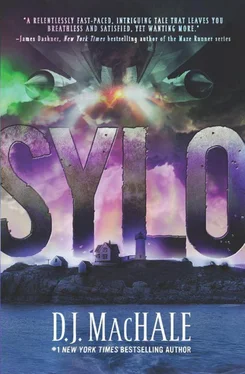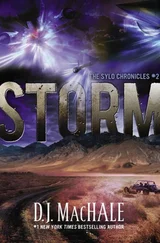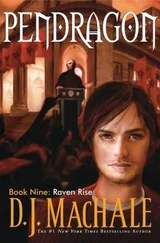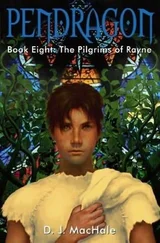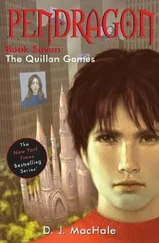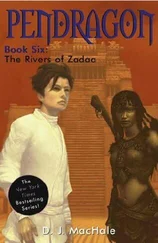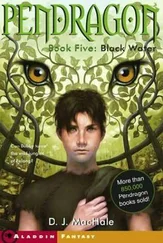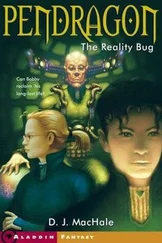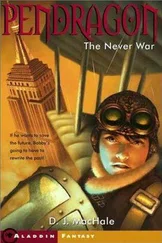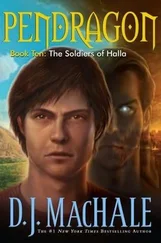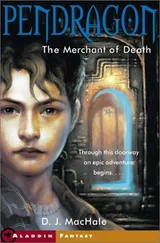Mr. Nelson cut aggressively inside of the lead boat, looking like he was trying to steal the wind from the leader and then edge him out at the last possible moment.
“Nice,” Quinn commented.
The crowd saw the maneuver and went wild. They sensed a last-second lead change and roared their approval.
Mr. Nelson’s boat picked up speed. The sailor in front tightened his jib, trying to grab every last bit of energy from what little wind he had left, but he was going to lose.
“Any second now,” Quinn said. “He’s going to hang back until the leader loses all of his speed and then cut across his bow.”
That’s exactly what happened. The leader’s boat lost its inertia and Nelson’s boat surged forward. He cut the wheel hard and turned to slip in front of the leader.
“Yeah!” Quinn exclaimed, then suddenly froze. “Whoa. Too hard.”
The crowd realized the same thing. As one, their cheers turned to shouts of warning.
“No! Cut back! Drop your sails!” Everyone was yelling advice that couldn’t be heard.
“They’re gonna hit!” I shouted.
A second later Nelson’s boat collided with the bow of the leader’s boat, knocking it toward shore.
The crowd groaned.
“Jeez, what’s he doing?” Quinn said with a gasp.
I expected Nelson to come around and try to get back on course, but he kept turning. To get to the finish line, he had to travel parallel with the shore. He didn’t. Nelson continued across the bow of the leader’s boat and headed toward the line of floating docks that were strung out from the pier.
“He’s out of control,” Quinn yelled.
The crowd started shouting at him and waving him off, as if that would do any good. Nelson’s sails were full and he was headed directly for the first line of floats.
Someone blew an air horn as a warning, but the boat kept coming.
Several race officials were on the pier, waving frantically, trying to get Nelson to steer off. It was useless. If anything, the boat picked up speed.
“He’s going to crash!” I exclaimed, stating what everybody already knew.
The race officials bailed, scrambling desperately to get off the float and out of harm’s way. The last terrified official leaped from the float onto the pier moments before impact.
Nelson’s boat hit the long float at full speed, its bow raising up like a breaching whale, revealing the underside of the hull. The two structures jackknifed, the bow rising into the air while pushing the float up onto its side. The boat would have kept coming up and over but the keel hit, stopping its forward momentum and twisting the doomed boat until the starboard side of the hull slammed into the float.
There was a horrific wrenching sound as the heavy boat unloaded on the semimovable float. The sails luffed, and finally the boat came to rest.
Nobody moved. Not the crowd on shore or the race officials down on the pier. I think everyone was in shock. That wouldn’t last. Soon the officials would hurry out onto the dock to secure the boat. But that wouldn’t happen for several more seconds.
The quiet pause wasn’t due to the shock that came from witnessing such a horrific crash.
There was something much worse to be seen.
Anybody within viewing distance knew exactly why the boat had crashed. Mr. Nelson was clipped in using nylon lines, standard safety procedure when racing singlehanded. The line was taught, pulling against Nelson, who hung over the aft hatch, not moving.
“Oh man. Is he—?” Quinn said, barely above a whisper.
He was.
It was the day of the second death.
Race officials and paramedics sprinted to the damaged float to get to the foundering boat and Mr. Nelson. I had no doubt what they would find. As at Marty’s last game, I focused on the crowd of faces who stared down at the scene in stunned silence. The band closest to the marina, unaware of what was happening, continued to play their version of the Ramones’ “Blitzkrieg Bop,” which added a surreal touch.
A woman cried out in anguish and pushed her way toward the float.
“Mrs. Nelson,” Quinn announced in a soft voice.
I figured that.
I continued to scan the crowd, mesmerized, not only by the communal look of shock, but also because I expected to see Mr. Feit standing somewhere, taking notes in his journal.
“What’s that sound?” Quinn asked.
I listened but heard nothing unusual, except for the lame band.
“I don’t hear anything…wait.” The sound cut through the band’s three-chord symphony. It was a low bass sound that could have been far-off thunder.
“Is there a storm coming in?” I asked.
There wasn’t a cloud in the sky, but the deep thumping sound grew louder and became so intense that it rumbled the pit of my stomach.
Quinn said, “It sounds like—”
His words were cut off by the thundering sound of six military helicopters that flew low over the town.
All eyes shot skyward.
“Marine choppers,” Quinn pointed out. “Since when did the festival book fly-bys?”
The helicopters flew in tight formation out over the harbor then divided, three banking to the right and the rest turning left as they began to make wide circles back toward land.
“Look!” I exclaimed.
Two more aircraft flew by at a much higher altitude. These were military transport planes that were carrying…
“Skydivers!” Quinn shouted.
The rear cargo doors of both planes opened and a line of paratroopers spilled out. One after the other, seconds apart, their chutes opened and the divers drifted toward the island.
Poor Mr. Nelson was suddenly forgotten, even by the paramedics. Everyone stood still, staring up at what looked like hundreds of soldiers drifting down on top of us.
The band finally stopped playing as everyone at the festival, not just those by the shore, turned their attention to the sky.
A shrill horn sounded from out in the harbor. I looked out, and my knees nearly buckled.
“What the hell is that?” I gasped.
Far off shore, maybe a mile out, a huge naval vessel had appeared on the horizon. From this large ship came smaller boats that looked like amphibious troop-transport landing craft. They were in the water and churning toward shore. Toward us.
“Why do I feel like a German soldier who just woke up on D-Day?” Quinn said.
The crowd came to life, buzzing with wonder and pointing at the spectacle that was unfolding before us.
“This has got to be some kind of show,” I said. “Right?”
“The ferry!” someone shouted.
All eyes went to the large transport ferry that was inbound full of cars and passengers lining the railing to gawk at the scene. It was a sight we had all witnessed thousands of times before, but this time it played out very differently. Two high-speed Navy gunships had taken up position on either side of its bow, changing its course and forcing it back out to sea.
“This is no show,” Quinn exclaimed, stunned.
The troop transports were getting closer by the second. Soon they would reach the line of sailboats that were still on the race course. In the sky the paratroopers were seconds from landing. It looked as though most would touch down on the far side of town where there were vast stretches of open land covered with sea grass. The choppers had circled back and were hovering beyond the shops on both sides of Main Street. The doors slid open and zip lines were dropped down. Instantly, dozens of soldiers slid down the lines to land on the beach and the parking lots of Arbortown.
Whoever they were, they knew what they were doing.
The crowd noise grew, along with the tension. People had no idea what was happening or what to do. Most moved back from the shore in fear. Some grabbed their kids and ran off. Others pulled out their cell phones to call…who?
Читать дальше
